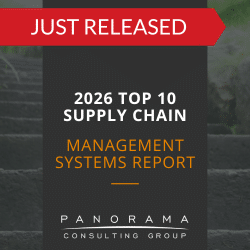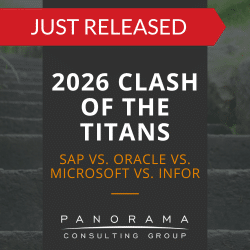- Culture change and ERP adoption often hinge on how teams balance local autonomy with enterprise-wide consistency.
- Motivating ERP users revolves around linking system tasks to the outcomes employees already seek.
- Resistance to ERP standardization frequently emerges when hidden micro-processes and misaligned incentives reward off-system workarounds.
- ERP adoption for remote employees gains momentum when a unified data hub replaces ad-hoc apps without diminishing their sense of autonomy.
If you’ve worked in any high-growth organization, you’ve probably felt two gravitational pulls at once. One champions autonomy—local teams hacking problems and owning outcomes. The other pleads for enterprise scale—shared data, common processes, and regulatory certainty.
Now, drop an ERP implementation into the mix and you can almost predict the result:
Early enthusiasm, creeping doubt, and pockets of workaround spreadsheets.
Today, we’re discussing how to align a culture of autonomy with the structure that ERP software demands. We’ll explore why culture change and ERP initiatives frequently stall and how to motivate ERP users who see standard templates as red tape.
Change Management Case Study
The client recognized their need for more comprehensive change management, so they asked us to fill in the gaps. We developed a robust communication plan to supplement the vendor’s communication approach.
Motivating ERP Users Who Value Flexibility
The people closest to the work will either make or break your system’s adoption. If autonomy is part of their identity, any hint of top-down enforcement will trigger resistance to ERP standardization.
Remote and hybrid employees intensify the challenge as autonomy permeates their entire role. If standardization feels threatening, ERP adoption for remote employees will falter as regional teams revert to spreadsheets the moment training ends.
Motivating ERP users in this context requires both empathy and strategy: leaders need insight into what employees value and why.
For example, some ERP users value features that reduce dependence on headquarters (e.g., mobile approvals and role-based dashboards). Knowing this, change leaders might focus on highlighting the benefits of self-service ERP.
Understanding ERP Users’ Values and Motivations
Following are some common reasons that flexibility-loving employees may hesitate to use a new ERP system:
1. Perceived Loss of Control
Employees in high-autonomy cultures equate mastery with control over their tools. When an ERP enforces common data structures, the immediate perception is loss of control.
To ease resistance to ERP standardization, leadership must acknowledge the identity threat and clarify what remains in the individual’s domain (e.g., the freedom to design dashboards or refine local process details). At the same time, they must draw a clear line around non-negotiable master data rules.
Our change management consultants often advise clients to facilitate two-way dialogue where employees can express their fears. As you gather employee feedback, you can discuss technical decisions in the context of specific concerns.
2. Conflicting Hidden Processes
Organizations often evolve micro-processes that rarely appear on formal process maps. During design sessions, these variations surface as exceptions nobody wants to document. Left unaddressed, they become backdoor justifications for side spreadsheets.
We recommend documenting hidden processes early—without judgment. This can turn wary employees into co-designers and early adopters.
3. Misaligned Incentives
Ask a field engineer to describe success and the answer will reference uptime, not system accuracy. Ask a creative director and you will hear “campaign impact,” not data entry compliance.
In high-autonomy cultures, employees measure their worth by the concrete outcomes they deliver. Praising them for “clean records” highlights an administrative chore, not the real-world win they care about. Over time, that mismatch drains motivation.
Executives should rewrite scorecards so system usage helps staff hit the goals they already chase.
For example, a food & beverage company implementing a supply chain management system might tie each plant manager’s bonus to the percentage of on-time shipments confirmed in the ERP, rather than in email or spreadsheets. This would motivate employees to use the system because logging shipment confirmations directly proves they’re meeting the delivery targets that already drive their success.
4. Remote-Work Tool Habits
Distributed teams often rely on consumer-grade apps they can install without IT approval. Mandating a monolithic toolset from headquarters feels tone-deaf.
Yet, paradoxically, it is remote staff who benefit most from unified data.
We recommend positioning the ERP desktop or web app as each worker’s control center—where they can check inventory, raise POs, and track job status on their own.
Our ERP selection consultants often tell clients to develop a communication plan that presents the new system as a tool for autonomy and self-service rather than for corporate monitoring.
5. Past Trauma with “Big Programs”
Many veteran employees watched earlier corporate platforms promise liberation but deliver gatekeeping. That history colors today’s rollouts.
Executives should hold small-group listening sessions where employees tell stories about what felt restricting about past systems; hearing those first-hand accounts lets project sponsors separate yesterday’s pain from today’s design and moves the change forward better than any top-down memo ever could.
6. A Love of Chaos
Certain high-energy employees build reputations as problem-solvers when processes are messy. Sudden phone calls, spreadsheet patch-ups, and heroic late-night fixes give them visibility and a sense of heroism.
When an ERP streamlines hand-offs and exposes data in real time, their firefighting spotlight dims.
One solution is to reframe their hero role. Ask these employees to lead continuous-improvement sprints or data-quality initiatives, turning their bias for action into structured gains.
How to Convert Autonomy into ERP ROI
1. Design Self-Service Channels First, Controls Second
Every sprint should deliver a tangible benefit of self-service ERP—inventory look-ups, real-time gross-margin snapshots, mobile PO approvals—before enforcing more rigid steps.
Seeing value breeds goodwill and user adoption. Mandating structure before demonstrating value fuels resistance to ERP standardization all over again.
2. Make Analytics the New Personal Craft
Invite power users to build and share visualizations using the ERP system’s embedded tools or a sanctioned BI layer.
When a remote analyst publishes a margin-erosion heat map that saves a product line, it showcases the value of ERP adoption for remote employees. Recognition programs that spotlight these wins motivate ERP users—whether remote, hybrid, or in-office—to use the new system to innovate and continuously improve.
3. Institute a “Deviation Fund” Instead of Blanket Exceptions
Absolute uniformity is neither realistic nor desirable.
We recommend establishing a formal process where teams can propose limited-scope deviations with a clear business case and a predetermined expiration date. This legitimizes entrepreneurial tweaks while preserving data integrity.
4. Tie Autonomy to Data Stewardship
Freedom to adapt workflows must carry the duty to protect master data.
Create role descriptions that pair decision rights with stewardship obligations.
For example, a regional sales manager can reconfigure quote templates but must own pricing-hierarchy accuracy. This accelerates culture change and ERP transformation by emphasizing that autonomy and accountability complement each other.
Learn More About Culture Change in ERP Implementations
Executives often frame autonomy as the enemy of standardization, but the two can coexist. The key is to prioritize deliberate listening, quantifiable self-service wins, and governance models that reward creativity while safeguarding data.
Our independent ERP consultants can help you transform your company culture into one of empowered innovation and disciplined data stewardship. Contact us to learn more.













